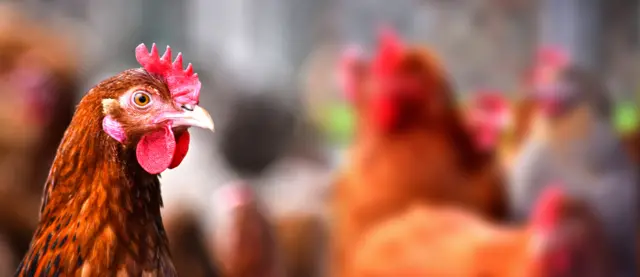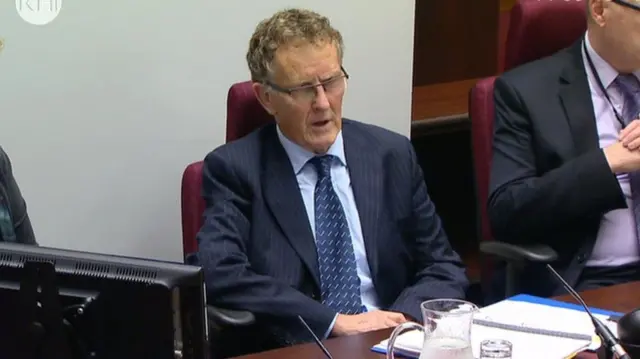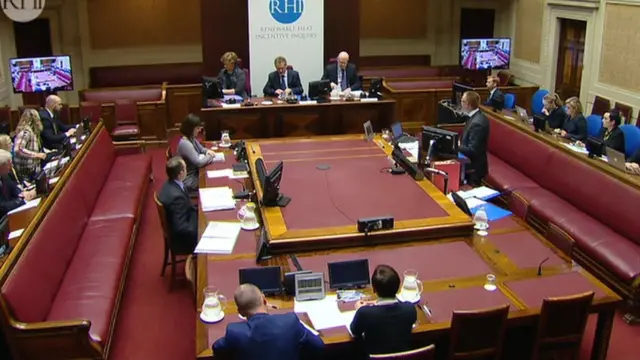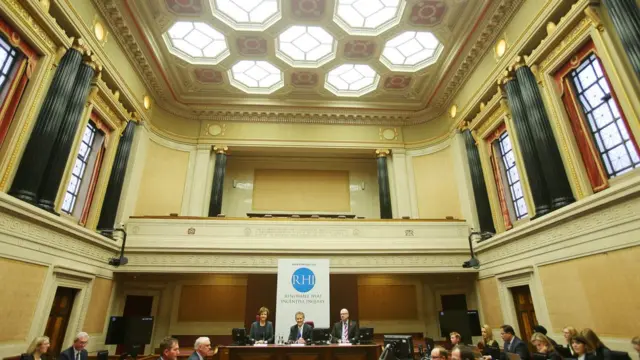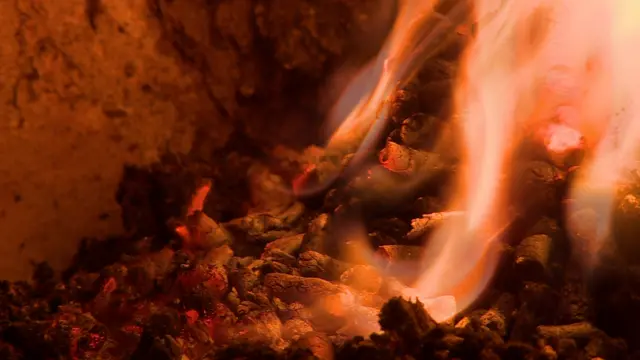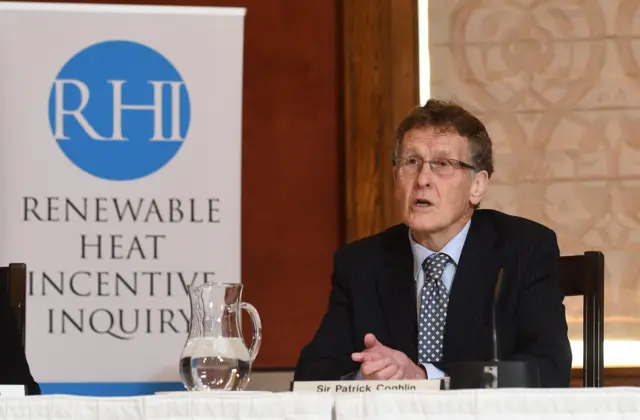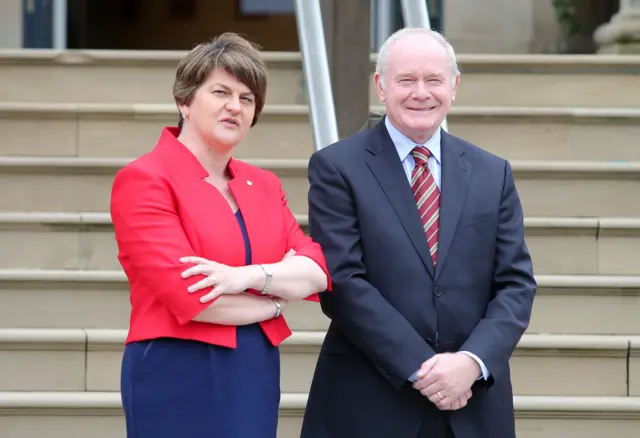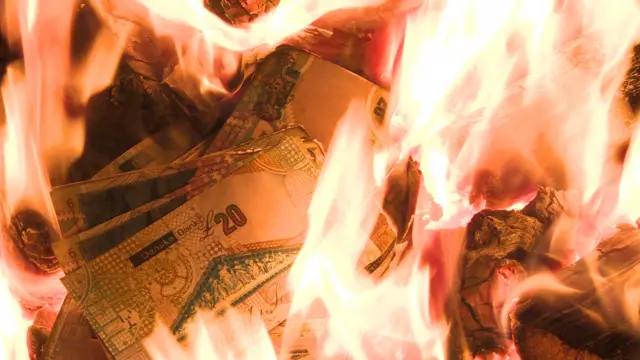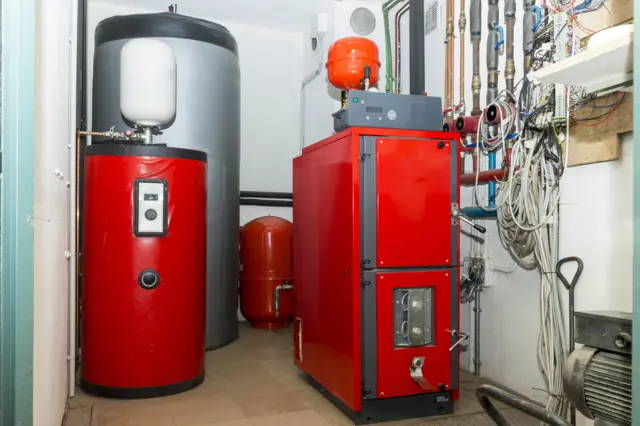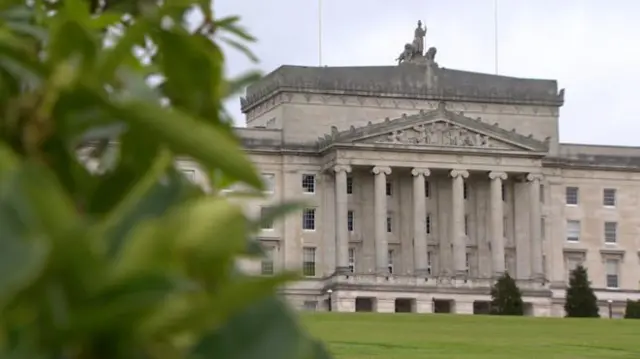'Let's leave out irrelevant material'published at 11:43 BST 14 September 2018
Not for the first time, Sir Patrick interrupts Mr Aiken (below) to ask where his line of questioning is leading.
With a deadline set for the end of the inquiry's public hearings at the end of October, he wants to see the removal of any "virtually irrelevant material" from the proceedings and he asks: "Where are we going?"
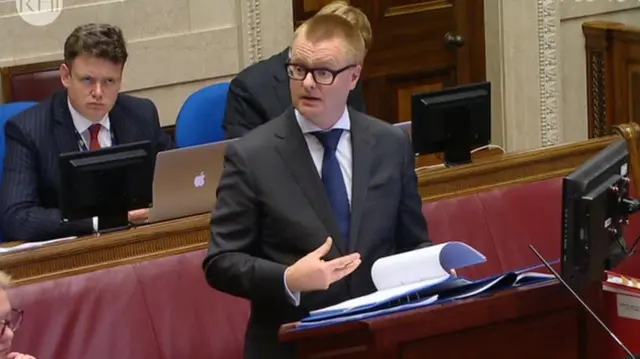 Image source, RHI Inquiry
Image source, RHI InquiryMr Aiken says he wants to be fair to the witness, who claims that he was falsely named as the person who caused the delay in the introduction of cost control.
"I think you've got my point," says Sir Patrick.
